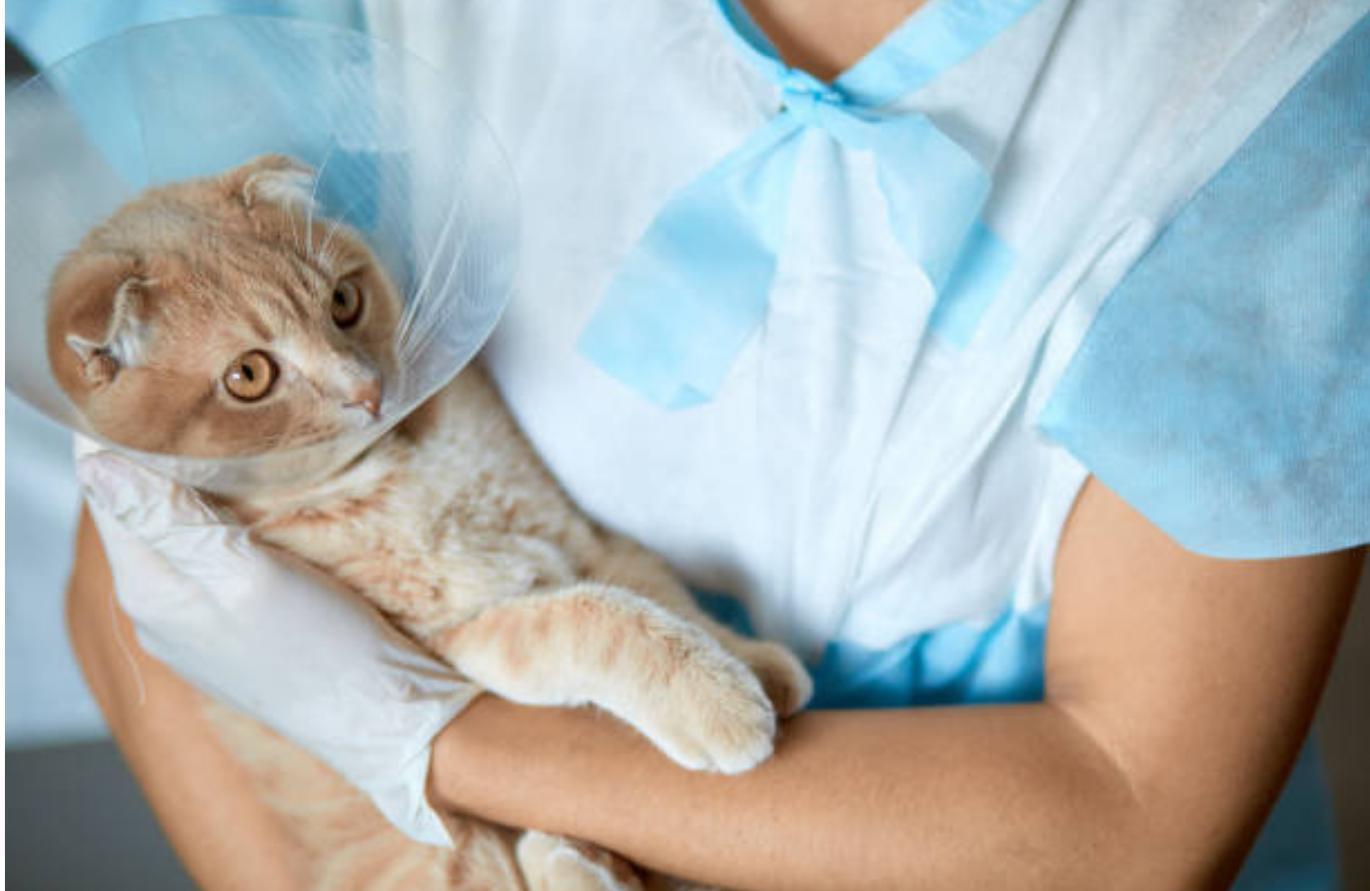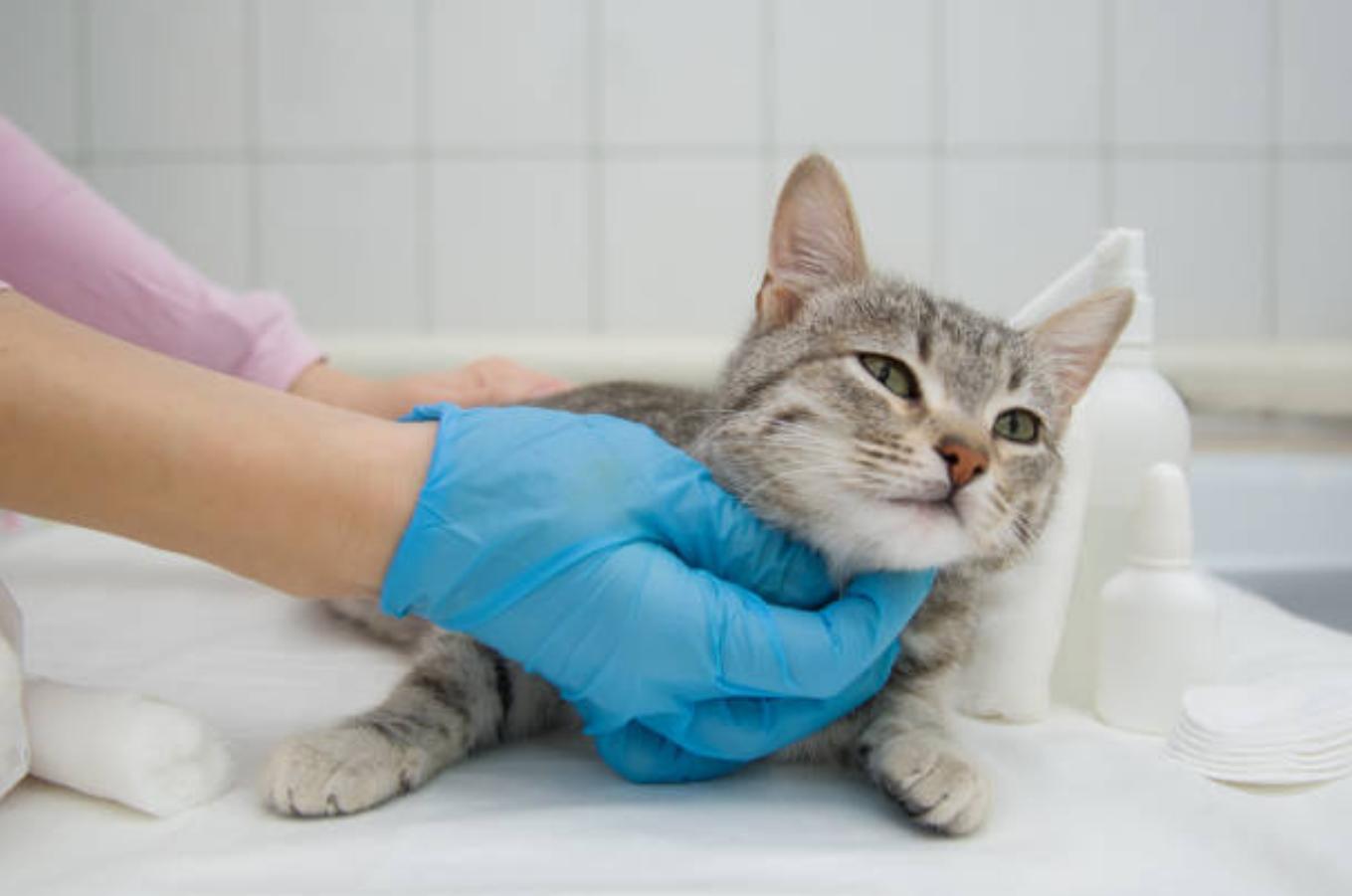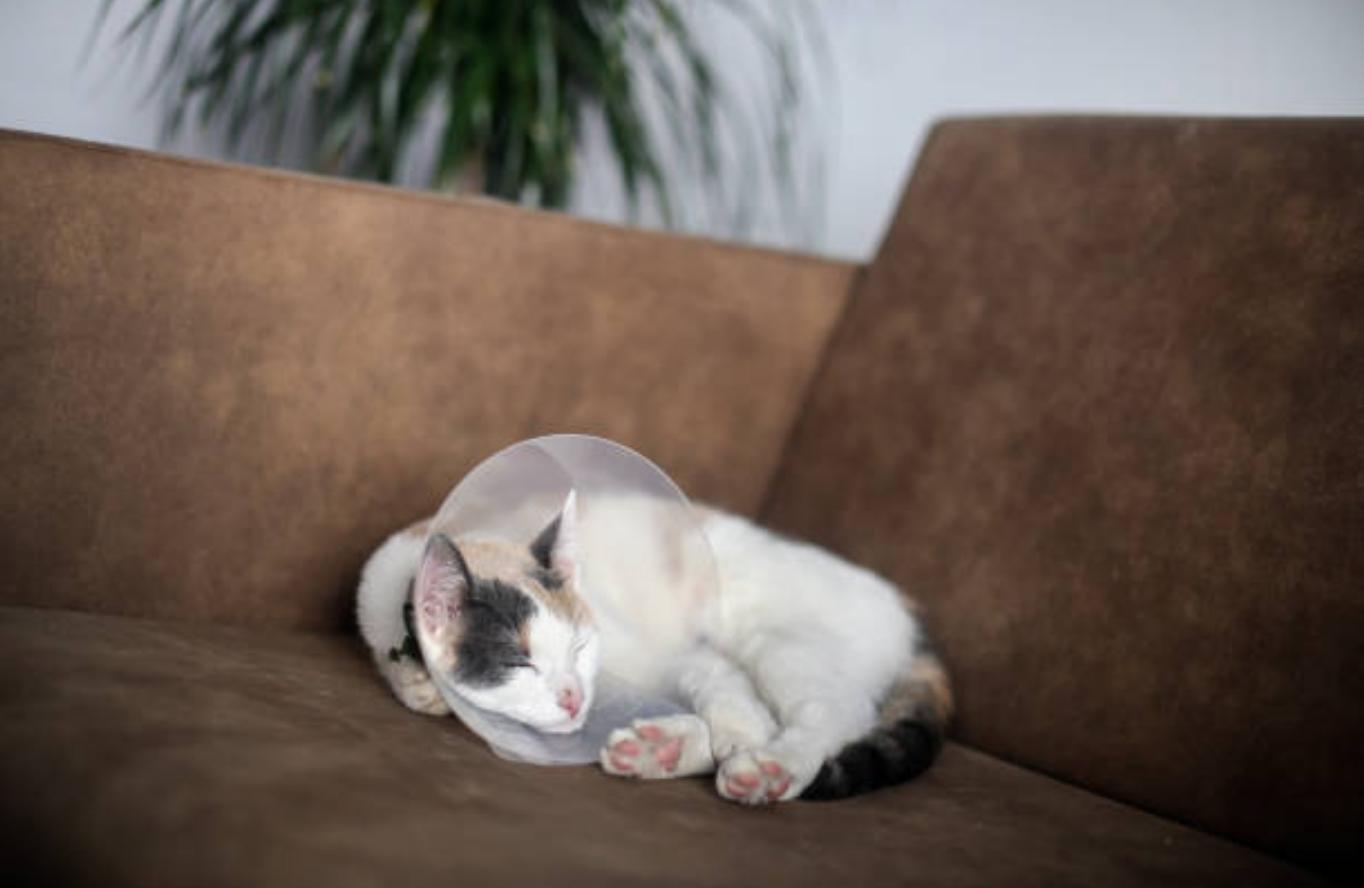How Long After Neutering a Cat Is Testosterone Gone?



See files for Cats
We expect a male cat will behave differently before and after neutering. This is due to testosterone, the main sex hormone in male cats. The neutering process is designed to prevent unwanted pregnancies, removing the testicles which are the main source of testosterone production in their body. While some testosterone production will remain, it will be almost negligible when it comes to influencing reproductive behaviors. In addition to an inability to mate with a female, the male will change their behaviors which are often problematic in sexually intact males. This is in addition to other benefits such as reducing the risk of certain diseases and generally prolonging their life expectancy.
At AnimalWised, we ask how long after neutering a cat is testosterone gone? We look at how testosterone influences a cat before neutering and how reducing its production will change their behaviors after the castration procedure.
When do you notice the effects of neutering your cat?
Sexually intact male cats will behave differently due to the increased production of the hormone testosterone. This is the main male sex hormone and it drives their reproductive behaviors. When they sense a female in heat nearby, testosterone production increases and encourages such behaviors which could lead to a possible mating.
The testicles are the sex organs in males where the main production of testosterone occurs. The main procedure for neutering a male cat is castration, i.e. removal of the testicles. It is a relatively simple procedure which is considered very low risk. There are other forms of sterilization, but castration is the most effective and the most recommended due to the benefits it provides the cat.
When a male cat is castrated, it will take some time for the testosterone which the testicles have been producing to leave their system. This can take around 7-10 days after being neutered. While most of the testosterone will be gone, some production will remain. This is mainly in the adrenal glands, but it is insignificant in comparison to the amount produced before. Female cats also produce low amounts of testosterone in this way.
We break down the first few days and weeks after castration surgery in males during which time their dropping testosterone levels can affect their behaviors:
- First days: in the first days after castration, the cat will be recovering from the procedure itself. They will have been given general anesthesia, although its effects should wear off within 24 hours. This will depend on the type and amount of anesthesia used. They will also be monitored to best ensure they are not confused or agitated when they wake.
- First week: even after the anesthetic has worn off, the cat will feel different because of the procedure. They will need time to recover from the surgery, as well as the often traumatic experience going to the veterinarian. They may be tired and will retreat into themselves. During their first week, the cat starts to return to their previous activity levels and will show more interest in their environment.
- First two weeks: while different cats will experience varying behavioral changes, generally speaking, male cats tend to stabilize their new behaviors after about two weeks. During this time, their testosterone levels drop to very low levels and they show few signs of discomfort from the procedure.
- After two weeks: once this two week period after castration has elapsed, we can say they are beyond the critical stage in their recovery. This is both for the wound to heal and for their behavior to stabilize. This does not negate the importance of other factors such as socialization and environmental stimulation which will help to determine a cat's personality.
It is very important to know that each cat can have differing reactions to the castration procedure. Some may be more anxious than others and will need greater support to help them readjust. Others might have problematic behaviors which are unrelated to testosterone production. Regardless, it is imperative we provide support during the post-operative period to reduce stress and encourage recuperation.
The time period in which the castration procedure is carried out is also very important. Veterinarians recommend castration is carried out around 4-6 months in cats. If it occurs later than this, they may have greater difficulty in stopping certain behaviors related to reproduction, despite a lack of testosterone production.

Male cat behavior before and after neutering
As we have stated above, different cats will behave differently as they they adjust to life post castration. However, testosterone production does influence certain common behaviors related to the male cat's sexual drive. With the removal of the testicles, these behaviors are drastically reduced and some may be eliminated completely. This is the reason some cats can behave very differently before and after castration.
With this in mind, we look at some of the common behavioral differences which may occur when a cat produces less testosterone:
- Aggression: if they are uncastrated, even very friendly cats can become more aggressive when they are around a female in heat. This is related to reproductive competition in males who vie for the same female and assert dominance to achieve mating. This aggression is mostly directed at other cats, but it can be redirected to others within the home, including people.
- Escapism: although cats are considered naturally curious animals, male cats will want to seek out females when they are in heat. If the feline is an indoor cat, they may try desperately to escape, something which can be both problematic for the household and very dangerous for the individual male cat. A lack of sex drive reduces the need to escape and prevents risks such as traffic accidents and getting lost.
- Marking: while all cats will mark to some degree, sexually intact male cats mark the most. Male cats mark to alert other males of their presence, something encouraged by testosterone production. Castration lowers this marking behavior. especially when they are females in heat nearby.
- Sexual behaviors: when a male cat is not castrated, they will often perform various behaviors to relieve sexual frustration such as mounting objects. Castration prevents these behaviors, although this can still persist even in castrated males. Learn more with our article explaining why a neutered cat still humps.
- Anxiety: especially in indoor cats which are not allowed outdoor access, male cats can become very frustrated and anxious if they are not allowed to carry out their reproductive behaviors. This can be very upsetting for the animal, something lower levels of testosterone production can greatly reduce.
- Weight gain: while it will depend on the individual, the hormonal changes brought on by castration can affect metabolism. For this reason, some male cats may have a greater tendency to gain weight after they are neutered. It is very important to maintain a balanced diet, provide opportunities for exercise and monitor any changes in weight.
- Social changes: some cats may show changes in social relationships with other pets after neutering. Reducing aggression can facilitate a more harmonious coexistence with other cats or animals in the same home.
- Changes in appetite: in addition to weight gain, neutering can affect a male cat's appetite. Some cats may show an increased appetite, while others may lose some interest in food. It is important to carefully monitor your cat's diet to maintain a healthy body weight.
Although neutering can be a very important determining factor in a male cat's behavior, it is very important we know it is only one of many. Factors such as genetic history, socialization, education and environment will also greatly influence a feline's personality and behaviors.
Learn how to socialize a kitten with other cats in our related guide.

How to help a cat calm down after sterilization?
Since castration can change a cat's behavior due to the lack of testosterone influencing their decisions, it is very important we help the cat adjust to their new reality. There are some practical tips guardians can use to help them during this period. They include:
- Environment: ensuring a calm and peaceful environment will help reassure the cat and relieve any anxiety. Give them a quiet place to rest that is comfortable and away from anything that might bother them. Separating them from other pets in the home is particularly important since they will not be ready to interact until they have recovered.
- Limit physical activity: not only is this important in ensuring the cat is allowed to have peace, it can also prevent rupturing their stitches if they have been used. This also helps avoid complications such as secondary infections.
- Food: you will need to follow your veterinarian's instructions carefully regarding their diet. They should be given easily digestible food which will not cause any dietary upset since they may be vulnerable after surgery. You should also give them food they enjoy as it will help give them positive experiences to aid in their recovery.
- Protect their stitches: use an Elizabethan collar for cats to stop the cat from licking their stitches and causing a rupture of the incision. If this is not available, other options may be used such as a cat bodysuit.
- Affection: provide your cat with loving interactions and ensure they have as positive an experience as possible. They may feel scared and alone. Don't force interaction, but ensure you are there to give them reassurance when they need it.
Don't forget to carefully monitor your cat's behavior during their recovery. If you see any signs of a physical health problem such as a bacterial infection, they need to be taken to a veterinarian immediately. Be gradual with their behaviors such as only allowing them outdoors for short, supervised periods until they are ready to explore again.
These guidelines can help ensure your cat is as healthy and happy after they are castrated as before. In fact, the benefits of neutering a cat can best ensure their health and well-being for a longer life.

This article is purely informative. AnimalWised does not have the authority to prescribe any veterinary treatment or create a diagnosis. We invite you to take your pet to the veterinarian if they are suffering from any condition or pain.
If you want to read similar articles to How Long After Neutering a Cat Is Testosterone Gone?, we recommend you visit our Other health problems category.







